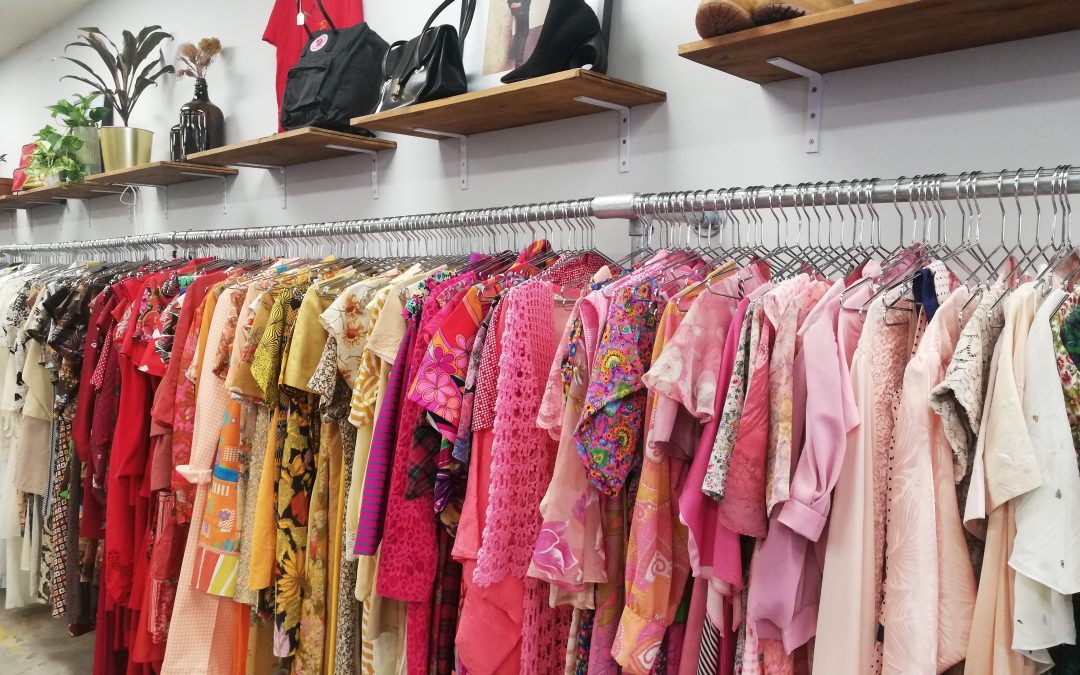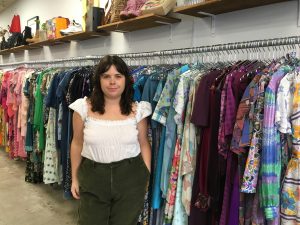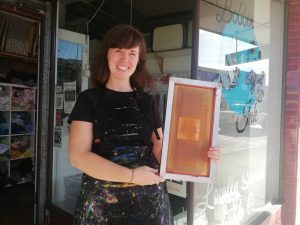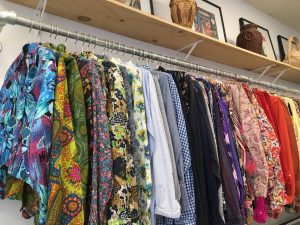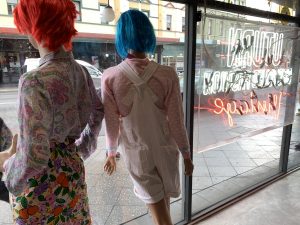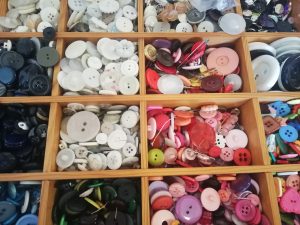It’s Fashion Revolution Week – a week for ‘fashion revolutionaries’ around the world to challenge the mainstream fashion narrative. The aim is to bring about change in the industry and in consumer choices. The clothes you wear tell stories about who made them and how they were made, where you obtained them, and how well-loved they are. These stories matter because they have environmental and social impacts.
The environmental impacts start from the production of raw materials, and continue throughout the manufacture, transport and sale of the clothes. The fashion business is a major consumer of water, cotton, oil and other raw materials, and large producer of carbon emissions. The recent decluttering craze has also contributed to increasing volumes of clothes being dumped with charities or ending up in landfill.
The social impacts are felt by the (mostly) women workers who make the clothes that fill retail stores. Oxfam Australia’s recent report highlighted stories of garment workers in Bangladesh who still do not earn a living wage, despite years of advocacy on this issue. Learn more and demand accountability from fashion retailers by asking #whomademyclothes?. You can see how Australia’s fashion brands rate in Baptist World Aid’s 2019 Ethical Fashion Guide.
So how do you reduce the environmental and social impacts of fashion? You could stop shopping entirely, or you could choose to shop less and shop well. In the Inner West there are so many opportunities to find 2nd hand, vintage and fairtrade clothes including charity shops, clothes swaps, markets, and online groups. One innovative venture is SWOP Clothing Exchange at 2/112 Enmore Rd, Newtown. Here you can find gorgeous pre-loved clothes and you can also exchange your pre-loved items for cash or in-store credit. Co-owner Beth explained how customers love to tell the story behind their clothes. “That’s probably our biggest point of difference. One, that we’re a clothing exchange so it’s not every day retail. Two, the history and stories, people have a connection to the clothes here, it’s not just here’s one item in ten size and ten colours. Everything is basically a one-off.”
The Inner West is full of artisans and crafty types who can teach you how to mend, upcycle and create clothes that you’ll love to wear again and again. One such place is Bobbin and Ink in Annandale. They run a range of sewing and screenprinting workshops, as well as offering a place to drop in, hang out and work on a favourite project. Co-owner Laura explained that “We’re showing people traditional techniques and ways they won’t generate waste, not to be wasteful in the way they produce things. The sustainable way of doing things, it’s also a cost-effective way of doing things.”
The stories your clothes tell also matter because they hold memories of people and places. If you remember the local market or boutique where you picked up a favourite item you’re more likely to treasure it and wear it again and again. Check out our stories on Instagram #lovedclotheslast. What stories do your clothes tell?

